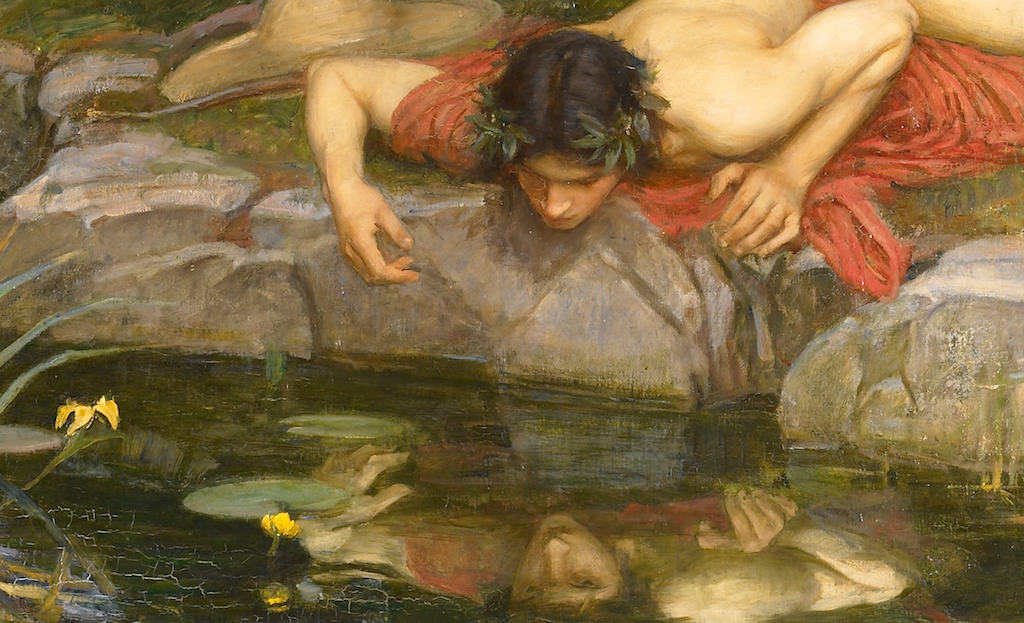Back in the eighties, we attended a large Presbyterian church with a television ministry. Television ministry isn’t my style, but this was Presbyterian. No strobe lights or smoke machines or healing services: it was music and preaching. The preaching was both edifying and compelling, and the music was directed by a dynamic choir director with impeccable taste in both classical and contemporary Christian choral works. My husband and I ended up in the choir (they didn’t even vet us!) and loved it.
The annual Christmas concert was a big deal that included singers from the local university (where our director headed the vocal music department). They were almost all youngsters, pert and eager. One of the young ladies, we heard, had been a finalist in that year’s Miss America pageant—a celebrity!
During dress rehearsal an overhead mic needed adjustment, and our Miss America finalist, who was sitting nearest to it, popped up out of her seat to do some tweaking. I was sitting a few rows back and toward the center, so I had a good view of the popping up and tweaking. And I clearly remember thinking, “What a pretty girl. What a beautiful, trim body. You did some good work there, God.”
I’m not accustomed to thinking this way about beautiful women—not that I’m especially envious (or not since high school, when one of my classmates was an actual model, with cool clothes). I do notice beauty, as most of us do, but that was the first time I recall giving praise to the One who designed bodies to be beautiful. It wasn’t the last.

What brought this random memory come to mind is this article in Quillette: The Attack on Beauty. The body-positive movement, according to the writer, is teaching girls that there’s no objective standard of beauty, that the cover-girl ideal is a conspiracy to keep them down, and that everyone—or every girl—is beautiful just the way they are. The article was inspired by “Scars to Your Beautiful,” an Alessa Cara song with this telling refrain:
And you don’t have to change a thing,
The world could change its heart,
No scars to your beautiful,
We’re stars and we’re beautiful.
Got that? If the world doesn’t turn its head when you walk by, it’s because the world is screwed up, baby. You’re a star, and don’t you forget it.
If messages like this taught young girls to stand up straighter and face the world with confidence, in spite of bad hair or teeth, that’s one thing. But there’s no evidence they do. Instead, plenty of evidence that many girls substitute whininess, defiance, and/or destructive behavior for confidence, because they have been assured the world should respond to them in a way it’s not going to.
The writer of the article concludes that pretending objective standards of beauty don’t exist, and that everyone is a “star,” encourages a narcissistic state of mind, “the condition of being enamored with one’s idealized projection of oneself to the exclusion of reality and of one’s real self.” One’s real self could eventually turn into a decent person if it’s not obsessed with imaginary stardom. But if everyone is a star, no one is. If everyone is physically beautiful, then beauty doesn’t mean much. And we know that’s not true. Even the oversize models I see in poster displays at Penney’s have flawless skin and sparkling hair.
In That Hideous Strength, the last volume of C. S. Lewis’ Space Trilogy, four of the female characters are trying on dresses for a celebratory banquet (after the bad guys have been defeated). Rather than each picking out her own gown, they collaborate in choosing the others, and somehow the colors and styles complement each woman’s personality. The dressing room has no mirror; they are not to rejoice in themselves, but in each other.
We can appreciate beauty in landscapes, buildings, and flower arrangements; likewise in Miss America contestants. All the more, perhaps, because it’s fleeting: “the grass withers, and the flowers fade.” Sophia Loren was a work of art; her efforts to preserve her looks have hardened them instead. All transient beauty points to the timeless, original Beauty who made our eyes to observe it and hearts to respond to it. And I think rejoicing in beauty, without envy, makes us all a little more beautiful.

Love you my friend!
I believe the catty put-downs of feminine beauty by other women encourage the listener to assume the speaker is either: a) homely herself and b) jealous. One could also assume that the speaker is also c) too lazy to put on some lipstick. This may or may not be true of the speaker, but in my generation at least, it’s easy to jump to these conclusions.
Nowadays, the speaker has a fall-back. She can pretend feminist intentions. You know, make it an “intellectual discussion.” See, everyone, isn’t it better to be smart (like me) than pretty? Aren’t I better than the pretty one? However you try to explain it otherwise, it all boils down to competition. Nobody’s fooled.
And, beauty can be a burden. The beautiful are never sure if anyone likes them for themselves, for their heart, or brain, or personality, or other gifts. And beauty certainly doesn’t last.
How much more positive it would be, instead of criticizing the beautiful, praise the Father for creating something lovely in EVERY human face, male or female. Search each face – you will find beauty!
I couldn’t have said it better, Holley!